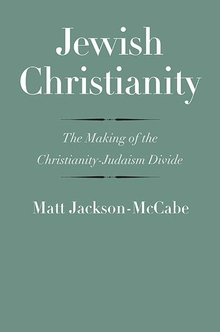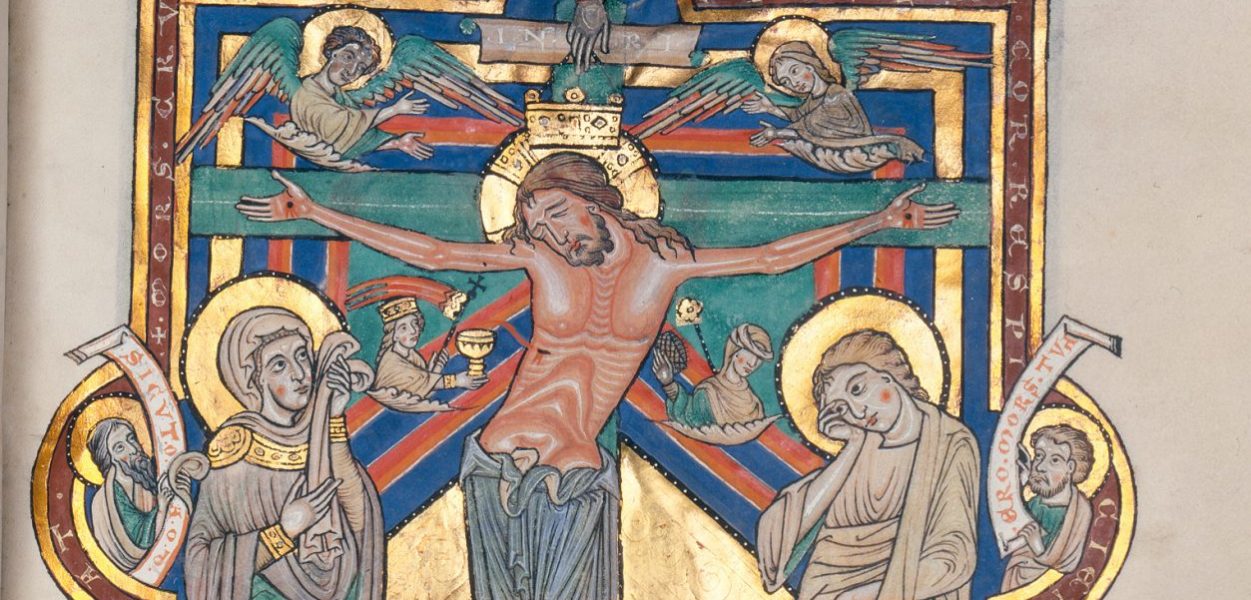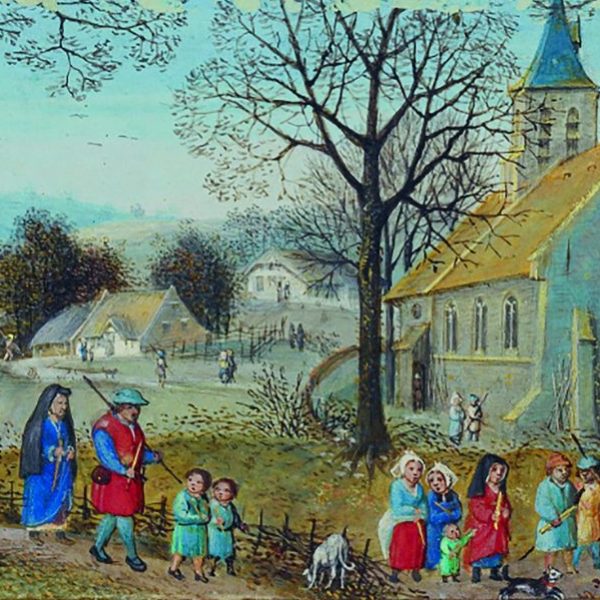Shifting Paradigms in the Study of Christian Origins
Matt Jackson-McCabe—
One of the more intriguing questions in the history of religion is how the Jewish apostles of a first-century Jewish messiah came to be considered the authoritative embodiment of values fundamentally other than Jewish. Making sense of Christianity’s relationship to Judaism has been a problem ever since the term “Christianity” was coined. Early Christian groups splintered over precisely this issue, lining up behind various positions articulated by figures like Marcion, Valentinus, and Irenaeus. Modern scholars haven’t had much more success building a consensus. Christianity’s relationship to Judaism has been a central, generative problem in critical scholarship on the New Testament since its emergence in the Enlightenment period, and never more than in our own post-Holocaust era. So well-known is the problem of the “parting of the ways” that scholars need not even specify the “ways” in question when using the phrase.
How one imagines the origins and historical development of Christianity in relation to Judaism depends in large measure on the assumptions one makes about Christianity’s relationship to culture. The claim that Christianity is not (or at least, not merely) culture is among its own most fundamental and enduring premises. Christianity did not originate, Christians have traditionally said, from human creativity. Quite the contrary: it was revealed by a god—indeed the God—to humans and then transmitted by them. Historically, then, Christians have tended to draw qualitative distinctions between the divine values defining their own group and the merely human ones (i.e., the cultures) of others. As one second-century author put it, “the distinction between Christians and other men is neither in country nor language nor customs”; the difference, rather, is that Christians did not arrive at their teachings “by the intellect or thought of busy men, nor are they advocates of any human doctrine” (Epistle to Diognetus 5 [Lake, LCL]).
For an early second-century writer like Ignatius of Antioch, the distinction between Christianity and Judaism—Ioudaïsmos, the customs of the Ioudaioi (Judeans, Jews)—represented a prime example of this difference. The first known instances of the term “Christianity,” which occur in his letters, make precisely this point. “If anyone should interpret Judaism to you,” Ignatius warns, “do not hear him.” Why? Because in his eyes, those who do so represent “monuments and tombs of the dead, on which are written merely human names” (To the Philadelphians 6.1 [Ehrman, LCL]). As a divine rather than “merely human” phenomenon, Christianity’s way of life is not only qualitatively different from Judaism’s, but entirely incompatible with it. “Let us learn to live according to Christianity,” Ignatius says in another letter, “for whoever is called by a name other than this does not belong to God . . . It is outlandish to proclaim Jesus Christ and to practice Judaism” (To the Magnesians 10 [Ehrman, LCL]).
A different understanding of Christianity’s relationship to culture began to take root in the Enlightenment era. Increasingly uncomfortable with traditional claims of supernatural revelation, some Christian intellectuals began to explain the nature and origins of Christianity in terms of natural religion. Drawing on a longstanding apologetic correlation of Christianity with natural law, such writers argued that Christianity should not be identified with any particular collection of beliefs and practices. True Christianity, they said, was an internal, spiritual disposition woven into the very fabric of human nature that people could (and should) bring to the beliefs and practices of their various cultures. As a natural, generically human, and thus universal religion, Christianity was still categorically different from (particularistic, ethnic) culture. But in an age of reason and tolerance, that difference no longer implied incompatibility.
The identification of true Christianity as natural religion created new possibilities for making sense of the Jewishness of Jesus and the apostles. According to writers like the eighteenth-century freethinker John Toland, Christianity did not begin when God impregnated a human woman in order to assume the form of a Jewish man, but when this natural religion became perfectly realized in the otherwise Jewish culture of Jesus and his apostles. Its subsequent realization in the Gentile culture(s) of Paul’s converts, moreover, made plain the “[religious] Union without [cultural] Uniformity” that Toland considered “the original plan of Christianity” (Nazarenus [1718]). Jesus and the apostles, in other words, were Jewish in culture, but not in religion.
The result was a broad reconceptualization of the history of Christianity in relation to Judaism. On one hand, Judaism continued to be identified as Christianity’s paradigmatic “other”—albeit now as particularistic, ethnic foil to Christianity’s assumed universalism. On the other hand, the first era of Christian history was reimagined—in a way Ignatius would have found entirely nonsensical—as a “Jewish Christianity”: an initial period in which natural (Christian) religion was wholly ensconced within Jewish culture. The central task of early Christian history now, accordingly, was to explain the processes by which early Christianity emerged from a cocoon of Jewish ethnicity in order to become its own distinct religion. Reconstructing this “parting of the ways”—and attending to the definitional problems it entailed (what exactly is the ingredient that differentiates a Jewish Christianity from a Christianity plain and simple?)—remained central preoccupations of critical scholarship on early Christianity throughout the nineteenth and twentieth centuries, even as its theological foundations became increasingly marginalized.
Now in the early twenty-first century, scholars are re-thinking the relationship of Christianity to culture yet again. Attempting to move historical reconstruction beyond the confines of Christian apologetics, scholars are analyzing Christianity not as an independent theological reality that inhabits culture, but as an example of culture itself. Whatever one might make of metaphysical claims regarding superhuman revelations or natural law, it is an observable, verifiable fact that “Christian” and “Christianity” refer to a group identity built around the enactment of specially valued forms of discourse and practice. Christianity, in other words, is an instance of culture.
This simple observation has led to another seismic shift in the scholarly reconstruction of early Christianity and its relationship to Judaism. Seen from this perspective, Christianity no longer represents a reality distinct from culture that somehow (incarnation? epiphanic insight?) suddenly irrupted into it, moving gradually from “within Judaism” to without it in a historic “parting of the ways.” Instead, Christianity and the Christianity-Judaism distinction are being analyzed as thoroughgoing cultural inventions: elements of a social taxonomy created, like any other, by social-historical processes of group identity formation. The central historical questions now, therefore, are the circumstances surrounding their invention and dissemination. At what point, and to what end, did some early Jesus community begin to insist that Judeans and their distinguishing culture were per se “other,” and to reify that difference by postulating a categorical distinction between Christianity and Judaism? How widespread was this view within the Jesus movement? Did other Jesus groups make sense of themselves within different social taxonomies—ones that located them more squarely within the traditional Judeo-centric division between Judeans and “the nations”? In short: Given the otherwise apparent Jewish character of Jesus and his apostles, how did the assumption that they represented the authoritative embodiment of decidedly not-Jewish values become the commonsense understanding of history? Is this how these figures actually conceived of themselves?
Approaching Christianity as culture will not, of course, tell us anything about the actual reality of the superhuman beings or cosmic laws that it, like other religious cultures, identifies as the source of its values. But it does promise to tell us a lot about people. In particular, it puts the classic problem of the relationship of Christians and Jews, and of Christianity to Judaism, in an illuminating new perspective.
Matt Jackson-McCabe is a professor in the Department of Philosophy and Comparative Religion at Cleveland State University. He is the author of Logos and Law in the Letter of James and editor of Jewish Christianity Reconsidered.
Further Reading:



























